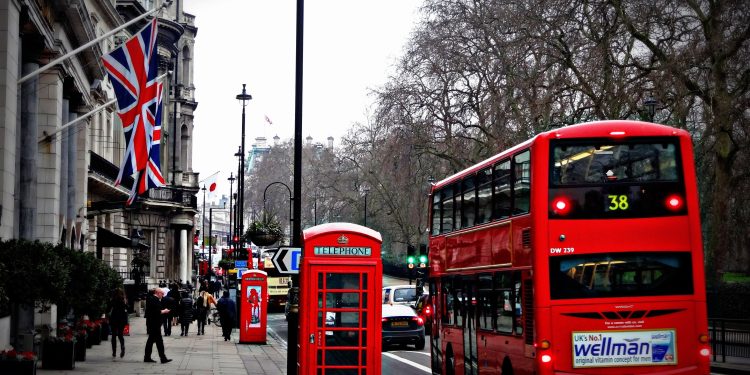As an immigrant, getting a visa to the United Kingdom (UK) is only the first step and never the actualisation of the dream of becoming a UK resident. UK visa is the beginning of sometimes a very long and costly journey to settlement in the UK.
While looking at the available options an immigrant in the UK can follow to become a permanent resident, without having to run up and down every now then seeking for visa renewal, you will find out how herculean the task is.
That is, how you can acquire an indefinite leave to remain (ILR) in the UK with all the benefits that comes with it. This is something certainly many people are interested in. If you are one of such people, stick with this article to the end and see what you can discover from it.
So, precisely, in this article we are going to be looking at the current UK immigration rules about indefinite leave to remain in the country, as well as the current Home Office regulations regarding UK permanent residency. To get all this, you will need to read this article till the end.
For clarity, Indefinite leave to remain (ILR) is how you settle in the UK. It is also called ‘settlement’ or ‘permanent residency’. It gives you the right to live, work and study in the UK for as long as you like and apply for UK benefits if you’re eligible. You can also use it to apply for British citizenship.
Since the departure of the UK from European Union, the immigration landscape has changed significantly. These changes have affected even the way and manner immigrants to UK can acquire indefinite leave to remain (ILR). I have taken time to look at the current immigration rules and the Home Office regulations.
Our research has uncovered many pathways to obtaining ILR in the UK. However, the following 4 routes are what we have chosen for discussion in this article:
10 Years Route
This is an immigration rule that allows you to acquire UK ILR if you have lived in the UK continuously for up to 10 years. It is also called the Long Residence Rule.
To qualify under this route, you must meet certain eligibility requirements, which includes:
- You must have been in the UK lawfully during this 10years period of long residence.
- You must not have stayed over in the UK. That is your entry into the UK must not have been through certain category of visas, which are not eligible for long stay. The most paramount of this category of visas is the standard visitor visa.
- You must not have stayed out of the UK during this period for more than 184 days at a time. That is to say, you must not have travelled out of the UK at any given time and stayed there for more 184 days.
- Similarly, during this 10years, you must not have stayed out of the UK for 548 days in total. So, even if you travelled out of the UK, cumulatively you must not have spent more than548 days.
- If you’re aged between 18 and 65 years old as at the time you are applying for the ILR, then you must take the Life in the UK Test and also show you have sufficient English language skills.
Private Life Route
This is an immigration rule that allows you to acquire UK ILR based on who you are and the kind of life you have lived or your lifestyle since you have been in the UK.
It applies to both children and adults, the eligibility criteria you have to meet are different depending on whether you’re applying as an adult or a child.
In the first category, as a child, if you were born in the UK and have lived here for 7 continuous years since your birth, you can apply immediately for indefinite leave to remain on the basis of the private life route.
In the second category, if you missed the opportunity as a child, you can still acquire UK ILR under this rule, if 3 conditions are apply to you:
- As a young adult (between 18 and 24years) you were given a visa in the UK on the basis of your personal life,
- you arrived in the UK as a child,
- you have lived in the UK for 5 continuous years lawfully.
Then in the 3rd category is the eligibility for other adults, who did not fall under the above 2 categories. You can apply to settle as an adult on the private life route if:
- you are at least 18years of age,
- you have previously gotten a visa while in the UK on the basis of your private life, for at least one year on the day you apply for ILR.
- You have lived continuously in the UK for 10 years with a visa, which is similar to the 10year rule.
Work Visa Route
This immigration rule is basically the most popular one. It is the route that allows you to come to the UK to live and work. This is mostly with a job offer and through a UK sponsor. Most of you would already have great insight on this particular route works. So, let’s not waste time on it.
However, I must mention that in respect of this route, you must usually have lived and worked in the UK for 5 years before you can qualify to apply for ILR through this pathway.
Family Route
As a family member of a British citizen or a person with indefinite leave to remain in the UK, you can also acquire your own ILR through such family member. This could be your husband or wife, civil partner, parent or child or any other relative who is already settled in the UK.
Your eligibility requirement for ILR and how you apply depends on which visa you currently have and how your family member you are depending on settled in the UK.
Importantly, note that even if your partner is dead, or your relationship ended because of domestic violence, you can still apply for ILR on the basis of the previous relationship before your separation. Note also that your civil partner is not just your husband or wife, but also someone you were living with in a relationship that’s like a marriage or civil partnership.
So, in summary, what exactly have we discussed? We have discussed 4 major routes for obtaining indefinite leave to remain in the UK. There are more routes that are mentioned here, but these 4 I discussed were chosen for the main reason that they all relate to our audience in particular.
The UK immigration landscape is charging fast and significantly too. We are tracking these developments and will continue to update you on this platform as things unfold.












